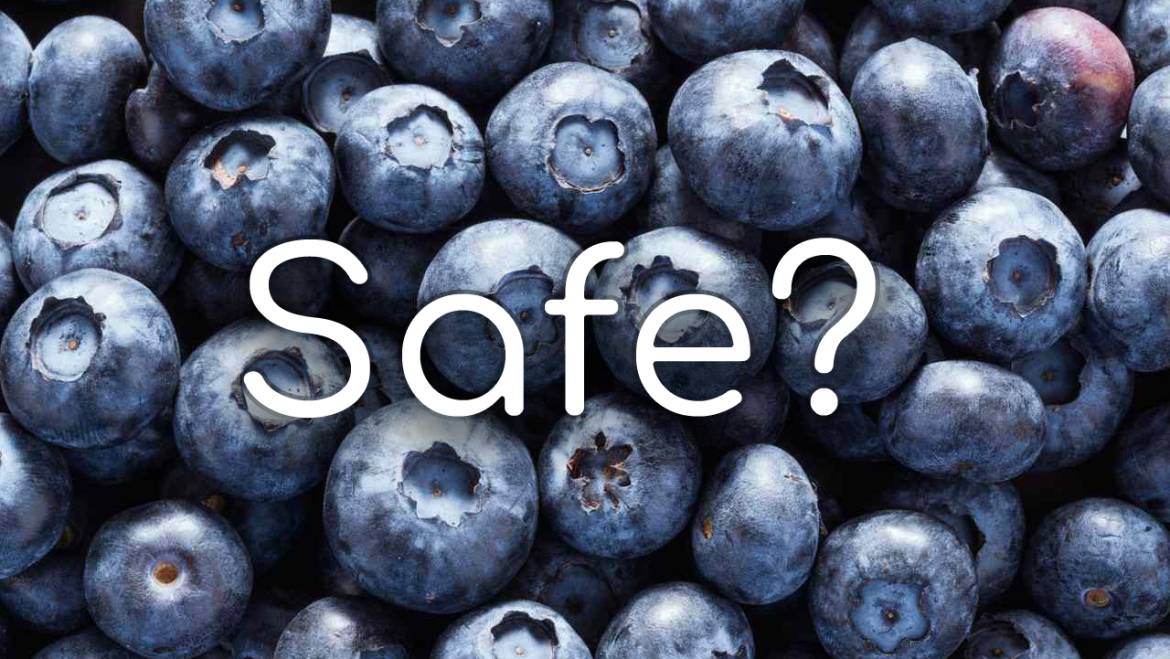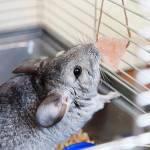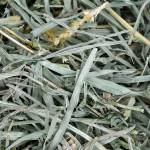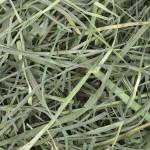Chinchillas are adorable, fluffy, and unique pets that require a special diet to stay healthy. As a responsible chinchilla owner, it’s crucial to know what foods are safe and nutritious for your pet. Blueberries are a popular fruit that many people enjoy, but can chinchillas eat blueberries? In this article, we’ll explore the topic in-depth and answer all your questions.
Can Chinchillas Eat Blueberries?
Before we dive into the nutritional value of blueberries and how they affect chinchillas, let’s answer the main question: are blueberries safe for chinchillas to eat? The answer is yes, but in moderation.
Blueberries are not toxic to chinchillas, but they do contain high levels of natural sugar, which can be harmful in excess. If a chinchilla eats too much sugar, it can lead to health problems such as obesity, dental issues, and digestive problems.
In addition, it’s important to note that some chinchillas may have sensitive stomachs and may not tolerate blueberries well. It’s always best to introduce new foods gradually and in small quantities to avoid any adverse reactions.
Nutritional Value of Blueberries for Chinchillas
Blueberries are a nutrient-rich fruit that is packed with vitamins and minerals. They are an excellent source of vitamin C, which is important for immune system function and collagen production. Blueberries also contain vitamin K, which is essential for blood clotting, and manganese, which supports healthy bone development.
In addition, blueberries are loaded with antioxidants, which help protect the body against damage from free radicals. Antioxidants are especially important for chinchillas since they are prone to respiratory problems, and antioxidants can help boost their immune system.
However, it’s important to note that chinchillas have specific dietary requirements, and their diet should consist mainly of hay and pellets. Treats such as blueberries should be given in moderation and as a supplement to their regular diet.
Benefits of Feeding Your Chinchilla Blueberries
While it’s important to feed your chinchilla a balanced diet of hay and pellets, treats like blueberries can have some benefits as well. Here are some benefits of feeding your chinchilla blueberries:
- Variety: Giving your chinchilla a variety of healthy treats can prevent boredom and keep them mentally stimulated.
- Antioxidants: As previously mentioned, blueberries are a great source of antioxidants, which can help boost your chinchilla’s immune system and protect against respiratory problems.
- Vitamin C: Chinchillas require vitamin C in their diet, and blueberries are a great source of this essential nutrient.
- Bonding: Feeding your chinchilla treats like blueberries can help strengthen your bond and improve your relationship with your pet.
How to Feed Blueberries to Your Chinchilla
If you decide to give your chinchilla blueberries, it’s essential to do so in moderation and in the right way. Here are some tips for feeding blueberries to your chinchilla:
- Wash the blueberries thoroughly to remove any pesticides or harmful chemicals.
- Cut the blueberries into small pieces to make them easier to chew and digest.
- Feed only one or two blueberries at a time, and no more than a few times a week.
- Watch your chinchilla closely for any adverse reactions, such as diarrhea or lethargy.
- Remove any uneaten blueberries from the cage after a few hours to prevent spoilage.
Alternatives to Blueberries for Chinchillas
While blueberries are a safe and nutritious treat for chinchillas, there are also other fruits and vegetables that you can give your pet. Here are some alternatives to blueberries that are safe for chinchillas to eat:
- Apples: Apples are a popular treat for chinchillas, but they should be given in moderation due to their high sugar content.
- Bananas: Bananas are a good source of potassium, but they also contain a lot of sugar, so they should be given sparingly.
- Papaya: Papaya is a low-sugar fruit that is high in fiber and vitamin C, making it an excellent choice for chinchillas.
- Carrots: Carrots are a crunchy, low-sugar vegetable that chinchillas love to chew on. They are also a good source of vitamin A.
- Kale: Kale is a nutrient-dense vegetable that is high in vitamins A and C, as well as calcium and iron. Chinchillas enjoy kale, but it should be given in moderation due to its high calcium content.
It’s important to note that not all fruits and vegetables are safe for chinchillas to eat. Some foods, such as avocado and chocolate, can be toxic to chinchillas and should be avoided at all costs. If you’re unsure about whether a certain food is safe for your chinchilla, it’s always best to consult with a veterinarian or do thorough research beforehand.
Best to Avoid Feeding Blueberries and Other Fruits
While it’s true that chinchillas can safely eat certain fruits in moderation, it’s important to remember that the safest option is to just never feed chinchillas any fruit, vegetable seeds, and especially nuts. All three categories are generally not good for chinchillas and should just be avoided if possible, going with another, safer treat instead. While chinchillas do require a varied diet, it’s important to provide them with foods that meet their specific nutritional needs. Pellets and hay should make up the majority of their diet, with occasional treats like raisins or rose hips given in small amounts. As with any aspect of your chinchilla’s care, it’s important to consult with your veterinarian if you have any questions or concerns about their diet.
In conclusion, can chinchillas eat blueberries? Yes, they can, but in moderation. Blueberries are safe for chinchillas to eat and are a great source of vitamins and antioxidants. However, they should only be given as a supplement to their regular diet of hay and pellets. If you decide to feed your chinchilla blueberries, make sure to introduce them gradually and in small quantities, and always monitor your pet for any adverse reactions.
It’s also important to remember that chinchillas have specific dietary requirements, and their diet should consist mainly of hay and pellets. Treats like blueberries should only be given in moderation and should not make up a significant portion of their diet. By feeding your chinchilla a balanced and varied diet, you can help ensure that they stay healthy and happy for years to come.







